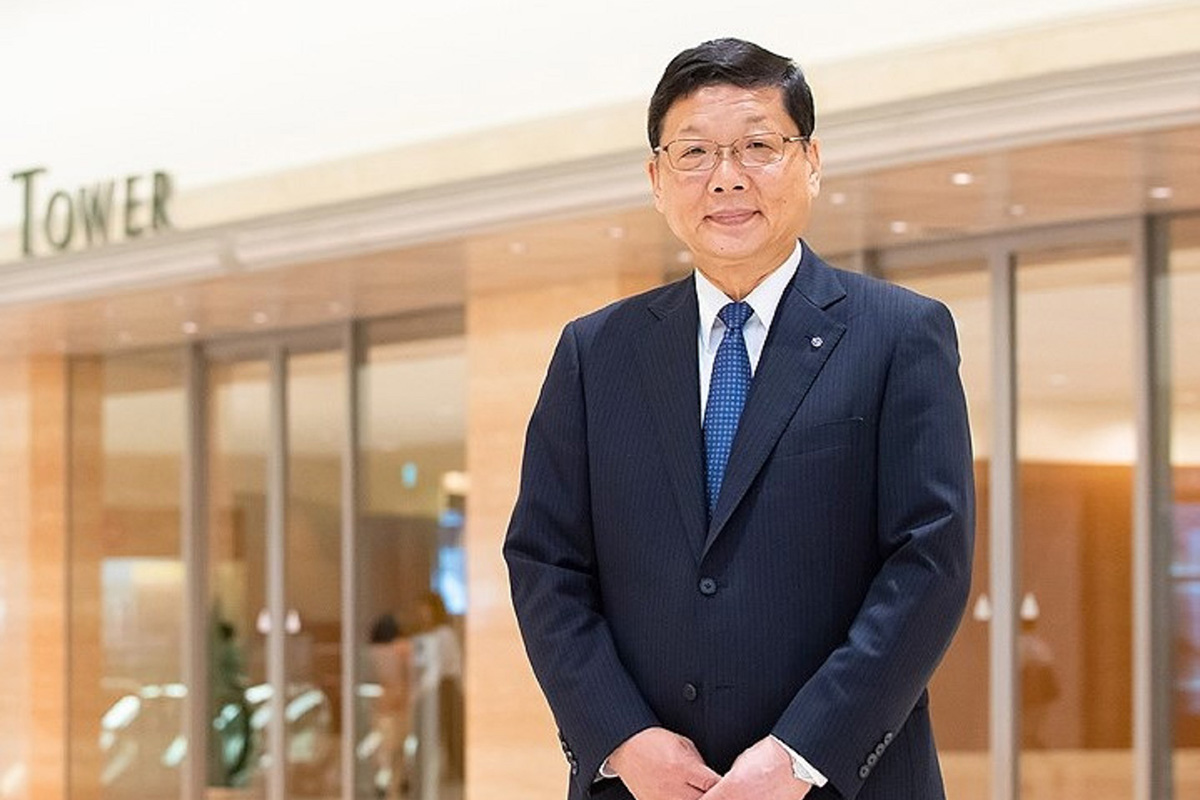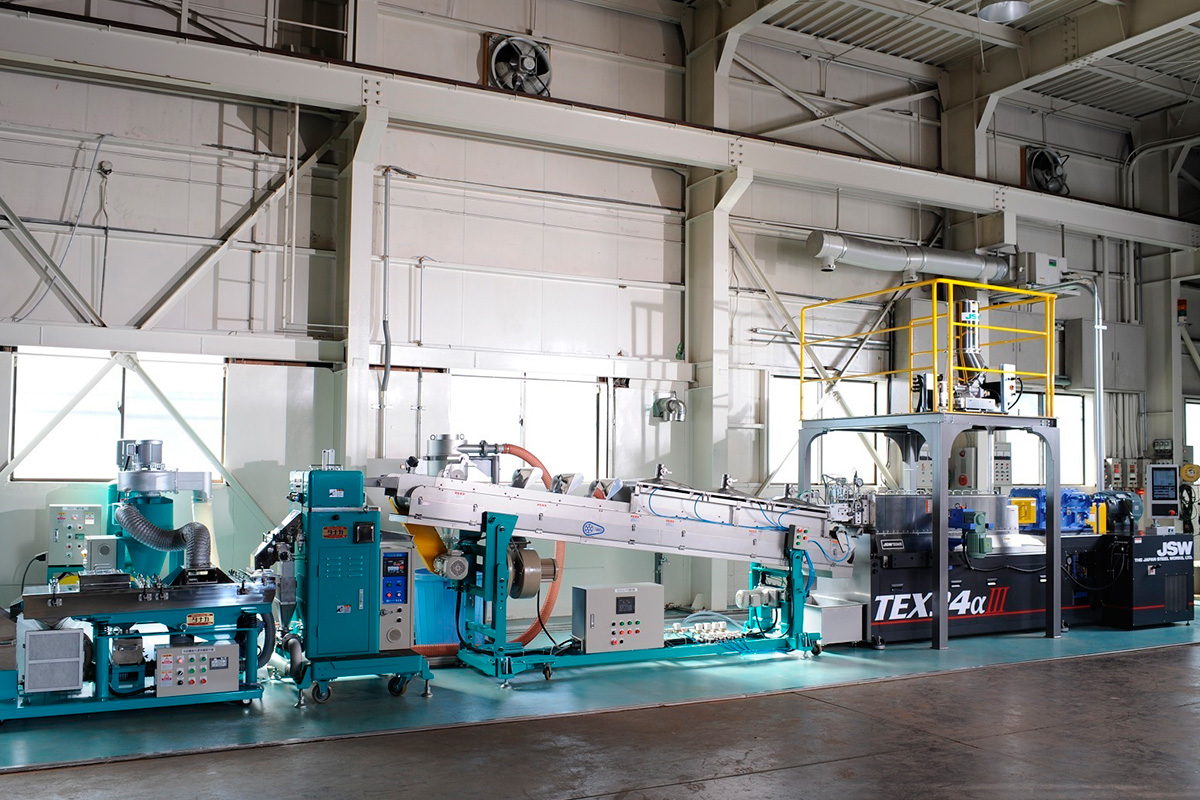Through our interview, we dived deep with President Kikukawa into the art of transforming abstract requests into innovative solutions for customers in the machinery sector.

If we could start with a brief introduction to your company. How did Nikko YPK start out? What are some of the main businesses you operate in, and what are some of the core competencies that allow your firm to stand out among your competition?
We are NIKKO-YPK SHOJI CO., LTD.(hereinafter called : NYC) trading company, which is actually a company that was created by combining two previous companies; NIKKO SHOJI and YPK. We formed in January 2014 and our stakeholders are 100% owned by THE JAPAN STEEL WORKS, LTD. (hereinafter called : JSW) meaning that the company is a 100% subsidiary. Currently, we have 138 employees and our total gross sales for 2022 was JPY 43 billion. We pride ourselves in being a trading house of specialty products such as injection molding machines and because of our manufacturing capabilities we are really able to provide our clients with a full line of services. We provide those services through our completely integrated systems, and this allows us to provide proposals to clients and fulfill an advisor role. This is something that is very unique in our industry and is considered a key strength of the company.
One product that we consider a big strength of ours is our plastics processing machines called the Fully Automatic Twin Screw Extruder, and it was something that was actually formed as a collaborative project between different companies. It was the world’s first and was funded by JSW along with TANAKA CO., LTD.. Another aspect that distinguishes us from other companies is that when clients have set up new factories we have been able to provide them with a complete lineup of machinery, devices, and equipment that they have needed. We have been able to propose and install everything necessary for those clients as a service. We are also pretty strong with chuck devices and we have created our own. It is used in average lathe, NC(Numerical Control) lathe and it is part of our original manufactured line called Nikko Precision. This is our own brand and we have been working to develop this further.
Our company structure has been solidified and I think we operate in a rather unique way. We have several major departments, the first being our plastic machinery and sales department, machine tools is next, then we have machine and material, and this department is named this way because JSW also has its own machine and material division. From those major departments, we have our various domestic offices, and we have these offices from Hokkaido all the way to Kyushu. We also have offices in Hong Kong, Shenzhen, and Shanghai. This is the current network we have.
Currently, our total gross sales for 2022 sits at JPY 43 billion, and we are currently in the process of combining the two companies together. This process started in 2014, and the company has grown, however, for obvious reasons 2020 shows a dip in business. The COVID-19 pandemic was rough for many businesses, but in the past 2 years, we have been able to expand and dynamically grow our business to heights never before seen in the history of the company. This is because of the accumulation of all of our business sort of firing on all cylinders.
I think our company’s greatest strength is the ability to provide clients with services in injection molding machines and blow molding machines, but through a one-stop-shop approach where we can offer clients solutions that run the entire gamut of their needs. We start with procurement, all the way to production and final output, and currently on our records we have about 1500 clients.
The Twin Extruder I mentioned earlier is really the pride and joy of NYC, and it is able to produce pellets. As I mentioned before, this machine was produced in collaboration with TANAKA and JSW. The raw ingredients go through the machine where they are pressed before pellets come out the other end. It is actually very specific because the usual situation with pellets is that there are multiple machines that require modifications at every level. Fine-tuning and temperature control are really key with these traditional machines, but with our machine everything is fully automated, meaning that even an amateur can operate it with very little guidance.
As a company, we are able to provide pretty much any machine that is required on a factory floor, and you will be surprised how diversified needs can be. From gear setting to grinding, polishing to pressing. Our delivered list is extensive and covers many very specific needs. I think it demonstrates a key strength of our firm and proves why clients choose NYC for their factory machinery needs.

Fully Automatic Twin Screw Extruder
What do you believe to be the key advantages of Japanese suppliers in the current macroeconomic environment?
When it comes to injection molding machines and equipment, there is still plenty of growth potential in terms of automating those pieces of machinery. It is not a fully saturated market, and so we see room for growth from that perspective. However, NYC’s priorities have always been to support our Japanese clients when they go overseas.
The reality of how this works is that we as part of JSW’s group have access to various overseas branches and a huge global network. Rather than competing with JSW in those locations, we instead collaborate and work with them through the support our services provide. We work together to expand JSW’s group as a whole.
Whereas in China we do have independent offices, in Thailand one of our staff works in JSW’s office there. In a sense, we will go and support locations where we have a large number of clients, however, for us as a company to go independently and expand overseas is something we aren’t thinking of. JSW has 8 offices in China, 2 in Taiwan, and 9 in Southeast Asia. They basically function as after-service divisions of JSW as well as sales offices for those regions. This covers the Asian region, but we also have locations in the US, a total of around 7 I believe. Europe is another region with this same sort of coverage, but recently JSW also established a new factory in Poland.
Japan is well known for its SME culture, and a number of your clients are these smaller firms looking to tackle Japan’s changing demographic through a greater emphasis on going overseas. You’ve actually mentioned already that through working with Japan Steel Works you are able to provide these firms with support when they expand abroad. Could you explain to us in a little more detail how Nikko YPK is supporting Japanese SMEs when they expand overseas?
As a way of supporting SMEs we at NYC purchase from 1,400 suppliers and sell to over 1,500 customers. According to the subcontractor law in Japan, the subcontractor must ensure that they receive a payment within two months of the contract being established, but when it comes to larger firms it could take 5-8 months due to the bureaucratic processes in place. As a result, many SMEs have a big problem with cash flow, so this is where we can step in and provide support for firms that need liquidity in order to run their business day-to-day. These SMEs in this sense rely on our firm.
In regards to the demographic decline that you alluded to in your question, there is an issue with a low birthrate in Japan, and the country is now the oldest in the world in terms of average age. To add to that there is a shift in attitude, and many Japanese people now no longer want to pursue careers in manufacturing, and thus we see Japan on a general decline. It almost seems like the younger generation is no longer interested in getting rich and accumulating wealth. They have been raised in a pressured-free environment that has many luxuries at their fingertips.
Here in our offices, we have been putting things in place to really provide the best benefits possible to our staff. I’m talking about things such as paternity leave, generous salaries, and comforts in the office. We are also trying to create an organization that is less bureaucratic, and less middle management. As you can see from our organizational chart all of the different divisions are more or less directly connected to myself.
From 2014 to 2022 you nearly doubled your revenue. How were you able to achieve such fantastic financial results?
I think that before the merger our businesses were operating independently, but through the merger, they became one division. That enabled us to greatly enhance our efficiency by streamlining processes that were often conducted independently by each company. This also enabled us to strengthen our presence in auxiliary equipment and I think that has been reflected in our financials.
If you look at total gross sales of JPY 43 billion, that is around 20% of JSW’s total gross sales, which is around JPY 250 billion(correct figure:JPY238.7billion). From that, JPY 25 billion of our total gross sales is coming purely from our injection molding business, which equates to over half. The around half of JPY 25 billion is actually accounted for by auxiliary equipment for injection molding machine. I think this is something very unique about our company.
Internally we have discussions among staff on kaizen and ways for our company to improve upon itself. Staff are able to suggest proposals and implementation of said proposals will result in extra payment as prize for the staff. One example was a suggestion regarding the use of rental cars, and an employee suggested having an overall contract with one company for when staff travels domestically and rent vehicles on the company’s books. As a result of negotiating the contract for these rental cars annually we were able to cut costs down by around 30% a year. An incentive was provided to this employee as a way of thanking them for this suggestion. As a result of this initiative, we have received over 130 proposals in 2022 fiscal year.

Nikko YPK Headquarters Building
It seems as if the big takeaway from the merger is the promotion of inter-company collaboration. Earlier you mentioned working with outside firms such as Tanaka. Do you have any experience collaborating with foreign firms and are you interested in such collaborations in the future?
When it comes to co-creation and collaboration with overseas partners we are at the level of importing and exporting, but in terms of actual collaboration, we are still not there yet. As a subsidiary of JSW, we are completely under the policies and directives of JSW. If they give us a directive to go establish an office overseas then we would focus and do that. In terms of what focus has been asked of us, they have put an emphasis right now on domestic business.
Currently, by focusing on the domestic market, the idea is that this will further strengthen JSW’s brand overseas as well. We are solely focused on that directive right now. We currently have a 90% share in the injection molding machine’s market domestically that is sold by JSW, so in that way, they have put their faith in our abilities.
Earlier you mentioned that you are purchasing from 1,400 suppliers. What percentage of that number are not Japanese firms, thus products produced outside of Japan by non-Japanese entities? Are you looking to increase this percentage?
If I had to take a guess I would say that less than 10% comes from overseas companies. Despite this, however, we are proactively looking for products that you wouldn’t find at all in Japan. This is something that is still in the idea stage and has yet to be implemented fully.
You mentioned that you have your own independent location in China outside of the Japan Steel Works structure. Could you talk to us a little more about this move and why you decided to do this?
The reason is that this location was established before the merger and at the time many Nikkei companies were shifting their manufacturing to China to take advantage of cheaper labor costs. It really just was a result of the times and the way business was being conducted then.
Imagine that we come back in 6 years and have this interview all over. What are your goals and dreams that you hope to achieve by the time we come back for this new interview?
Honestly, I probably won’t be around at that time. JSW is really looking to expand, and they are setting goals beyond JPY 300 billion in gross sales towards JPY 500 billion. As so much of our gross sales is generated through plastics processing business field we really want to push our gross sales through this avenue and contribute to the continued expansion of JSW.
0 COMMENTS